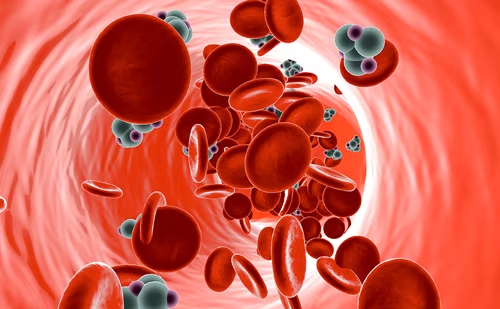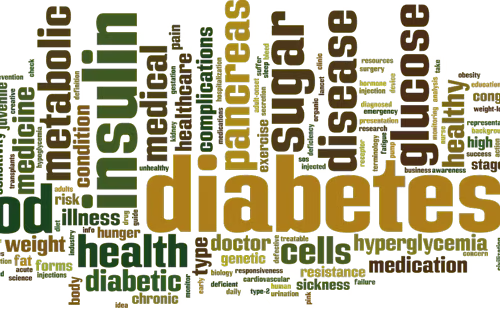Diabetes is a complex disease requiring the adoption of numerous skills and behaviors in order for the disease to be managed successfully. Diabetes education seeks to reach these goals:
- provide knowledge and skill training;
- facilitate problem-solving;
- help individuals identify barriers;
- motivate for lifestyle adaptation; and
- develop coping skills to achieve goals.
Diabetes is a complex disease requiring the adoption of numerous skills and behaviors in order for the disease to be managed successfully. Diabetes education seeks to reach these goals:
- provide knowledge and skill training;
- facilitate problem-solving;
- help individuals identify barriers;
- motivate for lifestyle adaptation; and
- develop coping skills to achieve goals.
The unique and valued outcome of diabetes education is behavior change. Diabetes educators recognize the value of facilitating behavior change that can positively affect clinical indicators and lead to improved health status. Figure 1 outlines the process in which improved health outcomes are realized. Diabetes educators help patients with diabetes acquire the knowledge and skills necessary to manage their disease on a daily basis. However, knowledge alone will not lead to improved clinical outcomes and the resulting long-term outcome of improved health—behavior change—is also necessary for clinical indicators to improve. Measurable behavior change is the unique outcome of working with a diabetes educator.
Diabetes self-management education begins with an assessment and development of an instructional plan, one that is heavily based on the patient’s goals, interests, abilities, and needs. The diabetes educator helps the person with diabetes to identify, prioritize, and work toward individualized goals—behavioral changes that lead to better self-management skills and self-care behaviors, better health and disease management, improved quality of life, and independence in lifestyle choices. As the multi-layered plan is implemented, the diabetes educator is able not only to provide digestible amounts of information and instruction but to assess the patient’s progress in learning, skill development, and behavior change. Measuring, monitoring, and managing outcomes information helps the educator plan appropriate follow-up interventions, informs decision-making, and drives healthcare delivery.Tools include demonstration, observation, role playing, patient self-report, and analysis of data, records, and validated instruments.This article will examine the self-care behaviors a patient must foster. Behavior1: Healthy Eating
- Improved metabolic control, a reduced risk of complications, and improved health are possible when attention is given to healthy eating and use of individualized meal plans.
Those affected by diabetes need to learn how food affects diabetes control and overall health. Healthy eating and an individualized meal plan should be part of the care plan for all persons with diabetes, regardless of medication regimen. Patients often struggle with family eating patterns and food preferences, poor eating habits and emotions, and limited choices. In recognition of the importance of an individualized meal plan and its impacton diabetes outcomes, medical nutrition therapy (MNT) provided by a registered dietitian (RD) is recommended in the standards of care for people with diabetes.1
Working collaboratively, MNT recommendations are supported by the other members of the diabetes healthcare team. It is primarily the RD diabetes educator who assists the patient in gaining knowledge about the effect of food on blood glucose, sources of carbohydrates and fat, appropriate meal planning, and resources to assist in making food choices. Skills taught include reading labels, planning and preparing meals, and measuring foods for portion control, fat control, and carbohydrate counting.
Collaboratively, the diabetes educator and patient address barriers to healthier eating such as environmental triggers and emotional, financial, and cultural factors. At appropriate intervals, the diabetes educator evaluates relevant factors, such as the type of food choices made, amount eaten, alcohol intake, effect of food on glucose readings, special situations, and problem solving.







